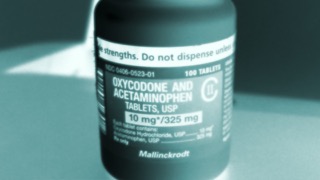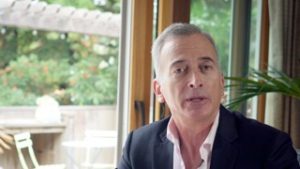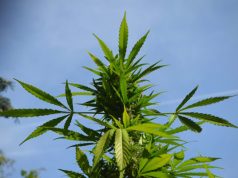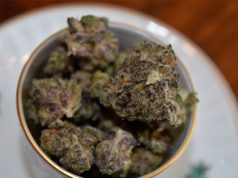Telehealth services are quickly becoming a vital and invaluable aspect of healthcare as some patients simply can’t physically make a trip to the doctor’s office. HelloMD is on the forefront of this crucial technology and are the leading digital healthcare platform for the cannabis industry. According to their website, they help hundreds of patients each week become fully legal in accordance with state law. Patients use their services to connect with a doctor, get a medical cannabis recommendation over live video, and gain access to cannabis products, dispensaries and advice on medicinal efficacy.
In an effort to gain more insight into their patients and their needs, HelloMD recently announced a partnership with U.C. Berkeley to conduct a patient survey concerning pain, opioid use and cannabis, which will be the largest ever of its kind. They expect the study to be complete later this year and plan to publish the results in early 2017. This study will follow up on their “Medical Marijuana Patient Survey” study of 17,000 patients, which they conducted in January 2016.

We recently had the privilege of taking part in an enlightening and inspiring conversation with Dr. Perry Solomon, Chief Medical Officer at HelloMD, about the study, HelloMD and the future of the medical cannabis industry.
The Marijuana Times: Please give our readers a brief overview of the study.
Dr. Perry Solomon: The study we conducted in January was about people’s views of cannabis in general. This current study will be leading from that, specifically focusing on pain, opioids and cannabis. We will be putting the databases of U.C. Berkeley and HelloMD together to poll approximately 100,000 people to ask them about the use of cannabis as a potential replacement for opioids. We want to learn if cannabis is better than opioids, not as good as opioids, if opioids cause more side effects, etc. The institutional review board (IRB) at Berkeley will give the study more legitimacy than our website alone. This validity of partnering with a major university will help dispel claims of our studies not being rigorous enough or too biased because of the nature of our website. Study after study shows that in states where cannabis is legal, opioid deaths have decreased. Writing fewer Medicare and Medicaid scripts for opioids has saved $165 million dollars a year in states where people can use cannabis as an alternative. There should be little question as to whether cannabis is useful at this point. We wanted to show, from a patient’s perspective, how well cannabis works for them.
MT: Talk a little about the opioid crisis in the United States.
PS: There have been 165,000 opioid deaths since 1999. That figure is overwhelming. Opioid overdoses are now the leading cause of injury death in the U.S., surpassing motor vehicle fatalities for the first time ever. Depending on the set of statistics you look at, 28,000 people a year are now dying from prescription overdoses. Obviously, part of the problem is the Schedule 1 fiasco with cannabis, and part of it is the way the government has been looking at opioid prescriptions and not even bothering to give a thought to any kind of alternative. As a physician, unfortunately we are kind of stuck to a certain degree when a patient has a pain issue. You have to give them something to help treat that, so you’re forced to give them opioids. In turn, there are a percentage of these patients that will continue to take these opioids and get addicted to them.
MT: How much does the pharmaceutical industry influence the decisions that physicians make?
PS: Twenty-five states plus D.C. have legal medical cannabis, but not all of them allow cannabis for pain management. There’s a lack of information out there about cannabis on top of that. That puts the physician in a tough spot. Because even if cannabis is legal for pain management in their state, it’s hard to know what dose to recommend, how much and in what form would best treat their pain. There are no uniform measurements or quality analyses like exists for other drugs. So that’s a huge problem even if cannabis were to be removed from Schedule 1. This doesn’t really even address the huge financial incentive the pharmaceutical industry has to keep pushing opioids. For instance, some patients experience opioid induced constipation. And instead of looking for an alternative, they create another drug like Mavontic to treat the constipation that comes from the narcotics. There was actually a commercial that ran during the Super Bowl this year about Mavontic. Having that kind of influence on the market, there is obviously little to no incentive for the pharmaceutical industry to do anything else at this point.
MT: Speaking of American football, we’ve covered several stories of former players coming out and speaking in favor of medical cannabis to treat game related injuries and pain. Tell us a little bit about HelloMD’s documentary on this.

PS: HelloMD’s ten minute short film is called “Who’s Keeping Score?” and made its debut at the Mill Valley film festival. We made the film with Ryan McBean, who is a former NFL defensive end who played with the Broncos, Ravens and Steelers. The film features commentary from Ryan, Ryan’s wife, Stephanie, and myself – talking about cannabis, opioids, and pain management in pro football. Of course NFL officials know about it. NHL doesn’t test at all. Some leagues do. Let the players decide for themselves, as long as it’s legal in their state.
MT: Give us some background on HelloMD.
PS: In October of 2014, the medical board of California said that teleheath was an acceptable way of evaluating patients for cannabis. As such, we started in March of 2015 doing remote telehealth evaluations of patients in California. Millions of people are being evaluated with telehealth services for various different diseases and are dispensed medication after the remote evaluation. Since then, our services have been in high demand. Patients have mobility issues, transportation issues, and sometimes doctors are charging outrageous amounts for services. Time and time again, we receive emails and messages from patients thanking us for being there when they couldn’t get to the doctor in their area, or if they couldn’t afford the inflated charges of those doctors, or if there is no doctor where they live. Once we were able to give them the recommendation, the feedback at that time was mainly asking what should they take – what strain, what form of cannabis, how to ingest it, where to get it, and so on. So from this feedback, we started producing educational videos and content that addressed these questions and concerns. Today we have our ‘Answers’ platform, a unique web-based service that allows cannabis users from around the world, or those considering using cannabis, to ask questions to the HelloMD expert community led by doctors and physicians.
MT: What else would you like our readers to know about HelloMD?
PS: As I said, we were getting so many of these questions; we decided to have the answers available to them right there on the site. Now we have become a medical cannabis education portal, where patients can ask questions from a number of experienced doctors, physicians, professionals, and manufacturers. We don’t sell any product. We have an information portal that patients use after getting their recommendation. Maybe the biggest thing though, is how patients can connect with and relate to others who are experiencing the same disorder or disease. It gives them a much needed sense of community and peace of mind. We now have a wealth of condition-based content that patients can share what strains and methods of ingestions have worked for them. They can’t get a recommendation if they live outside of California, but they can get any questions answered that they may have. This is an invaluable patient resource we offer to people worldwide.
MT: We talked about the Schedule 1 classification and the influence from the pharmaceutical industry. Those two things are probably the biggest roadblocks facing the continued acceptance of cannabis as medicine. Outside of those two, in your experience, what would you say are the other biggest obstacles to overcome?
PS: I would say people’s perception is a huge one. That needs to be changed. When some people hear that a dispensary is opening up in their area, they freak out and think that there will be an increase of everyone getting high and increased crime, and so on. But as we’ve seen in states like Washington and Colorado, for example, that just doesn’t happen. We need to understand where their fears of the “demon weed” originate and present them with the facts. In the NFL documentary we showed, Ryan McBean’s wife talked about exactly the same thing. She was worried that her husband was using cannabis based on her preconceived notion she had heard from the mainstream narrative. Once she saw how cannabis helped Ryan and how he was able to function compared to other medications, she did a complete 180 turn from what she thought before. I think others could be persuaded in the same way. That’s why my colleagues and I make a point to say medical cannabis and not marijuana.
MT: Exactly. From my own standpoint, I try to do the same thing, letting people know that marijuana was a term invented by government to demonize the plant.
PS: That’s exactly right, Jason. So that is why we need education not only for patients, their families and the general population – but also for physicians. Many physicians are afraid that they’ll get in trouble with law enforcement or the DEA because of the Schedule 1 nature and illegality of cannabis. We’ve received many emails from medical students asking why they aren’t being taught about cannabis, and their instructors might not even know about it. Not only that, but a lot of insurance companies have issues with cannabis because of its illegal nature, so that’s another thing that we need to change. Only one medical school in the country, out of 141, teaches a course on the endocannabinoid system. Just 13% of the others even bother to mention it at all.
MT: There’s obviously a big risk factor in terms of medical professionals putting themselves out there in favor of cannabis. I really have to commend you and your colleagues for doing so. We need more like you. I have one last question for you. Where do you see the cannabis industry in the next five to ten years?
PS: As we continue to move forward, I think we will begin to see more specialization when it comes to treating diseases, disorders and ailments. Hopefully the industry won’t be dominated by the pharmaceuticals anymore as more and more people understand what medical cannabis is and what it can do. The gold standard will be specific products for specific conditions. For instance, here is a tincture that’s been evaluated, with the specific amount of THC or CBD and exactly what dose you should take to treat your condition. We aren’t there now, but we need more objective studies like ours. Sometime in the future, I think we will see people be able to go to their drug store and under headache relief, find a proven, reliable tincture for cannabis.

Dr. Perry Solomon received his medical degree from Columbia College of Physicians and Surgeons. Upon graduating, he completed a surgical internship followed by a residency in anesthesiology to become board certified. Solomon has practiced anesthesia for almost 20 years and became interested in medical cannabis several years ago. As a result Dr. Solomon and his colleagues, Mark and Pamela Hadfield, founded HelloMD in 2015 after pivoting from a more traditional telehealth platform.
Dr. Solomon creates content for the HelloMD site, speaks to various groups about medical cannabis and locates other qualified physicians for HelloMD. He also oversees medically related collaborations and partnerships with other companies.
The study itself will be led by Amanda Reiman, PhD, MSW, Lecturer in the School of Social Welfare at UC Berkeley and Manager of Marijuana Law and Policy for the Drug Policy Alliance; Perry Solomon, MD, Chief Medical Officer for HelloMD; Mark A. Welty, Ph.D., NCC, LPCC-S, LSW, Kent State University, Adjunct Faculty, Welty Counseling and Consulting, CEO, The Village Network, Director of Research and Innovation, The Ohio Patient Network, Board of Directors; and Chris Janson, PhD, Chair, Associate Professor, Department of Leadership, School Counseling, & Sport Management, University of North Florida.







Encouraging news! Will we ever see cannabis laws allow patients to access anywhere in the U.S.? Hopeful.
2everyone needs to go to sleep and forget all about “Refer Madness” Look at it as a medicinal natural plant instead of something that wll make you see purple monsters in the mirror. GROW UP